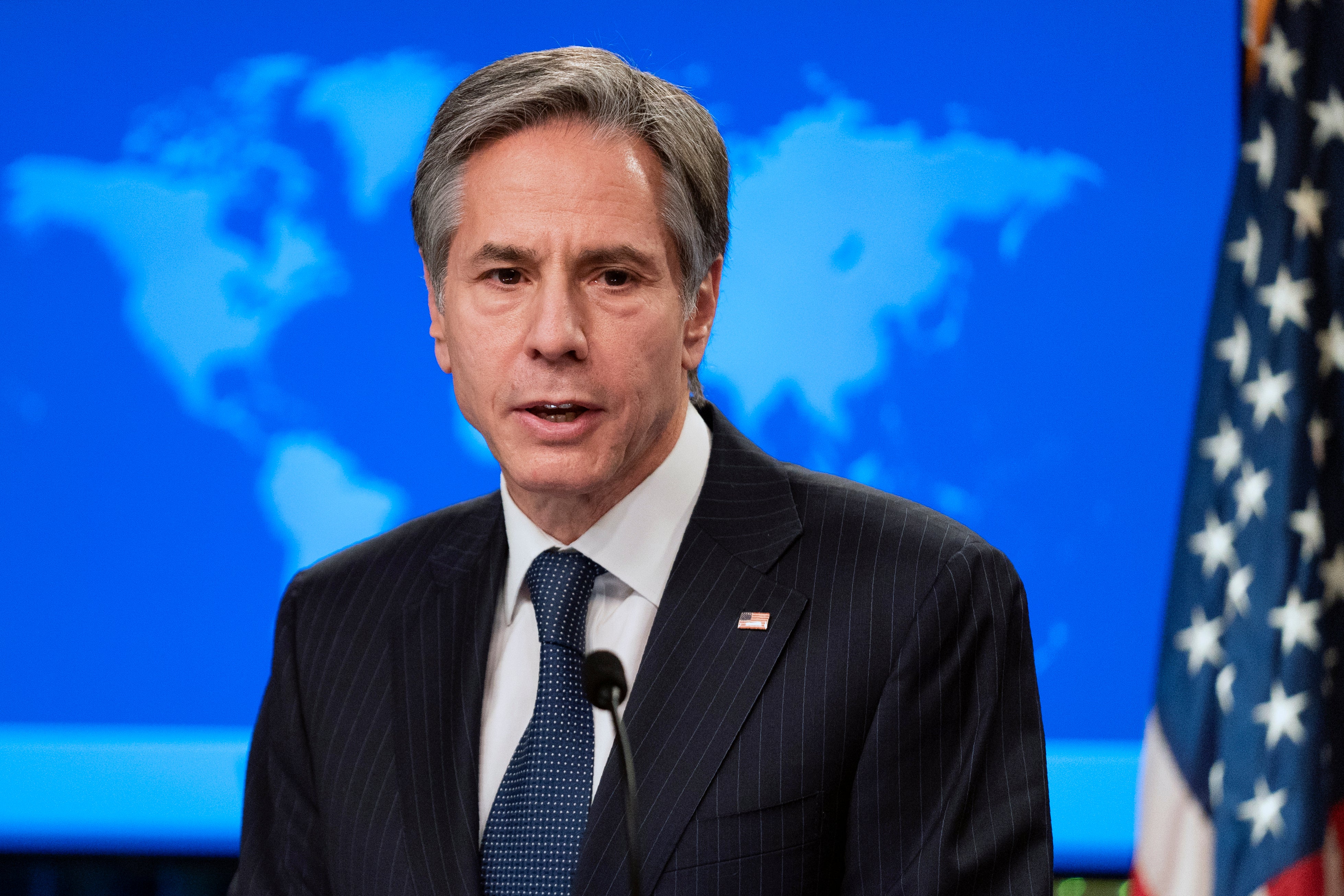1st US ministers' Japan visit under Biden to focus on China
Concerns about China’s growing influence in the region is expected to be a main focus when two ministers of President Joe Biden’s administration visits Japan for their first in-person talks with their Japanese counterparts

Your support helps us to tell the story
From reproductive rights to climate change to Big Tech, The Independent is on the ground when the story is developing. Whether it's investigating the financials of Elon Musk's pro-Trump PAC or producing our latest documentary, 'The A Word', which shines a light on the American women fighting for reproductive rights, we know how important it is to parse out the facts from the messaging.
At such a critical moment in US history, we need reporters on the ground. Your donation allows us to keep sending journalists to speak to both sides of the story.
The Independent is trusted by Americans across the entire political spectrum. And unlike many other quality news outlets, we choose not to lock Americans out of our reporting and analysis with paywalls. We believe quality journalism should be available to everyone, paid for by those who can afford it.
Your support makes all the difference.Concerns about China's growing influence in the region is expected to be a main focus when two ministers of President Joe Biden s administration visits Japan for their first in-person talks with their Japanese counterparts.
U.S. Secretary of State Anthony Blinken and Defense Secretary Lloyd Austin are on their way to Tokyo to meet their counterparts and other top officials as they try to reaffirm America's commitment to the region and their alliance following Donald Trump s temperamental approach.
The two secretaries are holding so-called “two plus two” diplomatic and security talks with their Japanese counterparts, Foreign Minister Toshimitsu Motegi and Defense Minister Nobuo Kishi on Tuesday.
“The United States is now making a big push to revitalize our ties with friends and partners — both in one-to-one relationships and in multilateral institutions — and to recommit to our shared goals, values, and responsibilities,” Blinken and Austin said in a piece published Monday in the Washington Post.
Despite the U.S. and others that share the values and principles to keep an open Indo-Pacific region, China is “all too willing to use coercion to get its way,” the two ministers said. “Here again, we see how working with our allies is critical."
The U.S. will lead with diplomacy, while maintaining America's military might “and renew our alliances and ensure they're fit for purpose to address the threats and opportunities of our time," Blinken and Austin wrote. Together they can hold China accountable for its human rights abuses and other problems in Xinjiang, Tibet, as well as Hong Kong and Taiwan, they said.
Signaling the U.S. return to the Asia-Pacific region, Biden on Friday held a first summit of the leaders from Australia, Japan, India and the U.S. known as the “Quad” virtually and emphasized Washington's commitment to the region.
Japan's Chief Cabinet Secretary Katsunobu Kato on Monday welcomed the outcome of the talks as “a good opportunity for the four countries to confirm their strong commitment as a driving force to achieve ‘a free and open Indo-Pacific.'" Kato praised the “quad” summit held early in the Biden administration.
Japan considers China's growing presence in the region a security threat. Beijing has built militarized manmade islands in the South China Sea and is pressing its claim to virtually all of the sea's key fisheries and waterways. Japan is concerned about China's claim to the Japanese-controlled Sekaku Islands called Diaoyu in China, in the East China Sea and its increased activity in the disputed area.
China has denied it is expansionist and said it is only defending its territorial rights.
On the Biden administration’s first Cabinet-level trip abroad, Blinken and Austin are also expected to discuss the coronavirus pandemic and climate change, as well as the nuclear threat posed by North Korea and the situation in Myanmar after its military coup.
While in Tokyo, they plan to have virtual meetings with business leaders, civil-society members, business leaders and others while in Tokyo before heading to South Korea, another key ally in the region, Wednesday.
China is not on Blinken’s itinerary, but he is set to meet senior Chinese officials in Anchorage, Alaska, on his way back to Washington. Austin will go from Seoul to New Delhi for meetings with Indian leaders.